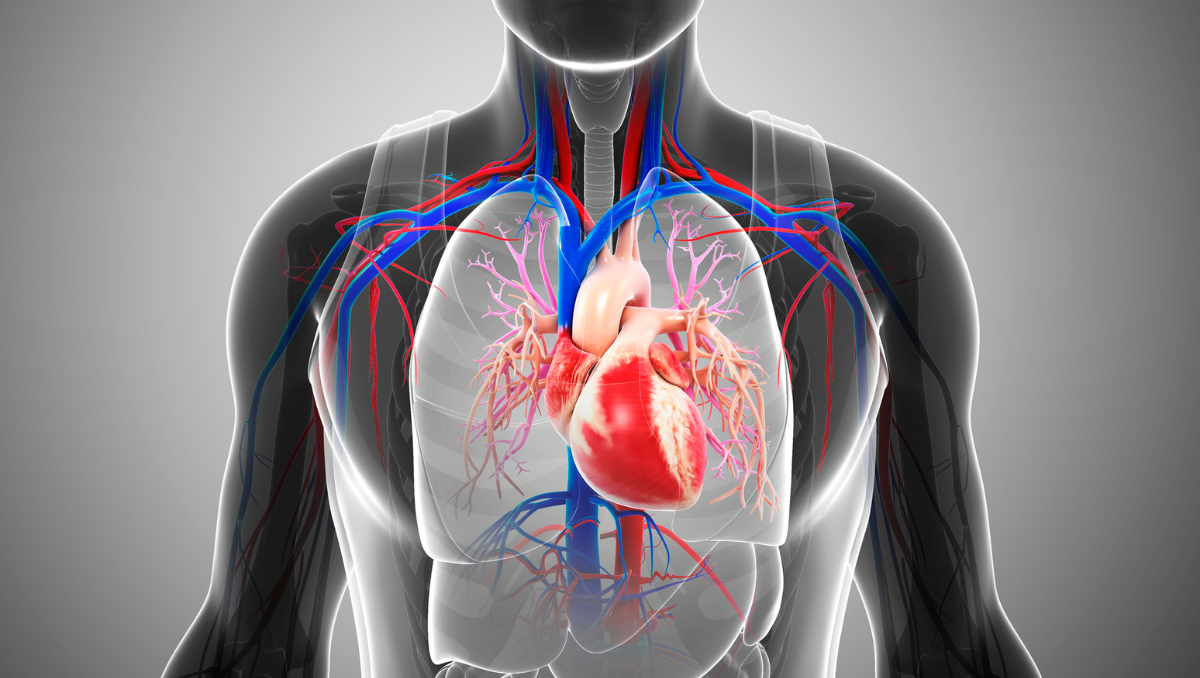AHW Health Grants in Wisconsin Propel Heart Health Research
February 20, 2024 Posted by AHW Endowment

Heart disease is the leading cause of death in Wisconsin, accounting for more than 20% of deaths in our state. Wisconsin residents experience high rates of major risk factors for cardiovascular health issues, including obesity, smoking, and sedentary lifestyles. Across our communities, there are disparities in access to healthcare and preventive services, and different racial and demographic groups have disproportionate experiences with heart disease.
In honor of February being American Heart Month, we are highlighting several active projects funded by the Advancing a Healthier Wisconsin Endowment (AHW) that are addressing heart disease and making advancements in the prevention and treatment of cardiovascular health conditions for all residents of Wisconsin and beyond.
AHW Health Grants in Wisconsin
Probiotics Revolutionizing Heart Failure Treatment
Wisconsinites experience higher rates of heart failure compared to other states. Chronic heart failure is a form of heart disease that alters the heart’s ability to pump, causing fatigue and shortness of breath. Inflammation has been identified as a factor for chronic heart failure, and new research suggests that focusing on the gut microbiome in heart failure patients with reduced ejection fraction (HFrEF) might be a solution for treating inflammation.
In a project funded by an AHW health grant in Wisconsin, Medical College of Wisconsin (MCW) principal investigator Michael Widlansky, MD, MPH (Medicine), and co-investigator Nunzio Gaglianello, MD (Medicine), are exploring the use of probiotics to target inflammation in patients with heart failure with reduced ejection fraction (HFrEF).
By identifying alternative therapies that target gut microbiota, this research could uncover valuable findings that might improve quality of life in patients with HFrEF.

Identifying Tip60's Influence on Calcium Signaling and Mitochondrial Function
Ischemic heart disease—heart problems brought on by narrowed heart arteries—accounts for 15% of all deaths in Wisconsin, and disproportionately affect racial and ethnic populations across our state.
When a coronary artery is blocked and cannot properly deliver blood to the heart muscle, a myocardial infarction (heart attack) can occur, which can lead to heart failure or an increased likelihood of death. At the cellular and molecular levels, myocardial infarctions can alter the heart’s signaling pathways that are important to normal cardiac functions, including contraction of the heart and pumping blood through the body.
With the support of a $49,757 AHW health grant in Wisconsin, MCW researchers led by principal investigator Xinrui Wang, PhD (Pharmacology and Toxicology), will study the role of lysine acetyltransferase Tip60 (a multifunctional protein) during heart attacks. Their findings will support the development of treatments for ischemic heart disease and better outcomes for heart patients.
Investigating Macrophage ROS to Combat Heart Disease Risk
Atherosclerosis is a condition in which plaque builds up in arteries, leading to various cardiovascular diseases that can be life-threatening. Macrophage, or immune cells that protects our blood vessels from viruses and bacteria, are one of the major elements that make up this plaque. When high levels of cholesterol collect in macrophage cells, it can cause atherosclerosis.
With $50,000 in funding from an AHW health grant in Wisconsin, MCW principal investigator Daisy Sahoo, PhD (Medicine), and co-investigator Yiliang Chen, PhD (Medicine), are focusing on understanding how macrophage mitochondrial reactive oxygen species (ROS) affect cholesterol metabolism during atherosclerosis.
Through their investigation of this intricate process, the team hopes to identify potential therapies for treating atherosclerosis and reducing the risk of heart disease.
The Role of Myofibroblast CCN3 in Pathological Cardiac Remodeling
African American and Native American populations are disproportionately impacted by heart failure. In Wisconsin, more than half of heart failure cases are due to ischemic heart failure, which occurs after heart attacks cause hardening of the heart walls.
After surviving an initial heart attack, patients have limited options for treating the ongoing damage caused by myofibroblast cells, which can worsen scarring and heart failure over time. Previous research has indicated that a protein called CCN3, produced by myofibroblasts after a heart attack, might cause excessive scarring and heart failure.
To better understand the biological processes behind heart failure after heart attacks, researchers at MCW, led by principal investigator Caitlin C. O’Meara, PhD (Physiology), will investigate how adjusting CCN3 levels affects how a heart functions after heart attacks, and how CCN3 communicates with other types of heart cells. Made possible by a $300,000 health grant in Wisconsin from AHW, researchers hope to find new treatments to slow down the progression of heart failure after a heart attack, and potentially allow better and healthier lives for heart attack patients.
.png?width=1200&height=678&name=Heart%20Health%20Blog%20%20Image%20(1).png)
Exploring New Targets for Cardiovascular Disease Therapies
In our state, approximately 1.3 million residents have hypertension (high blood pressure), which is a major risk factor for cardiovascular diseases. In hypertensive patients, the lifetime risk of heart failure is twice that of a patient with normal blood pressure. While there are effective anti-hypertension therapies available, there are concerns about the effects of their long-term use.
To explore new antihypertensive therapy strategies, MCW principal investigator Gaurav Kumar, PhD, postdoctoral researcher (Physiology), and co-investigator Curt Sigmund, PhD (Physiology), will use a $50,000 grant from AHW to identify potential therapeutic targets—specific genes and proteins that can be targeted with therapeutic drugs—and explore antihypertension treatments with fewer or minimal side effects.
Ultimately, the researchers hope to apply their learnings to further research about RhoBTB1 binding proteins and their role in regulating vascular function and blood pressure.
Conclusion
Advancing research on heart health in Wisconsin is essential for improving patient outcomes, treatment options, and preventative care. The AHW-funded research projects will contribute to the growing body of knowledge surrounding cardiovascular diseases. By continuing to invest in such impactful research, we strive to make significant advancements in heart health for all Wisconsin residents.



